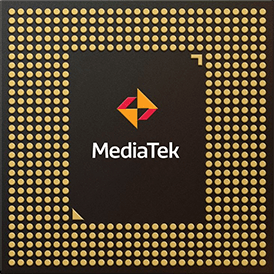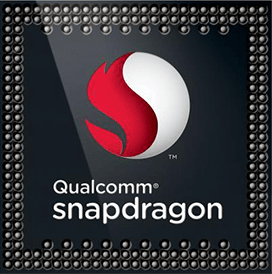MediaTek Dimensity 1080 vs Qualcomm Snapdragon 778G
Last updated:
CPU comparison with benchmarks

|

|
|
| MediaTek Dimensity 1080 | Qualcomm Snapdragon 778G | |
CPU comparisonMediaTek Dimensity 1080 or Qualcomm Snapdragon 778G - which processor is faster? In this comparison we look at the differences and analyze which of these two CPUs is better. We compare the technical data and benchmark results.
The MediaTek Dimensity 1080 has 8 cores with 8 threads and clocks with a maximum frequency of 2.60 GHz. Up to 16 GB of memory is supported in 2 memory channels. The MediaTek Dimensity 1080 was released in Q4/2022. The Qualcomm Snapdragon 778G has 8 cores with 8 threads and clocks with a maximum frequency of 2.40 GHz. The CPU supports up to 16 GB of memory in 2 memory channels. The Qualcomm Snapdragon 778G was released in Q2/2021. |
||
| Mediatek Dimensity (36) | Family | Qualcomm Snapdragon (102) |
| MediaTek Dimensity 10xx (2) | CPU group | Qualcomm Snapdragon 778 (2) |
| 2 | Generation | 4 |
| Cortex-A78 / Cortex-A55 | Architecture | Kryo 670 |
| Mobile | Segment | Mobile |
| -- | Predecessor | -- |
| -- | Successor | -- |
|
|
||
CPU Cores and Base FrequencyThe MediaTek Dimensity 1080 has 8 CPU cores and can calculate 8 threads in parallel. The clock frequency of the MediaTek Dimensity 1080 is 2.60 GHz while the Qualcomm Snapdragon 778G has 8 CPU cores and 8 threads can calculate simultaneously. The clock frequency of the Qualcomm Snapdragon 778G is at 2.40 GHz. |
||
| MediaTek Dimensity 1080 | Characteristic | Qualcomm Snapdragon 778G |
| 8 | Cores | 8 |
| 8 | Threads | 8 |
| hybrid (big.LITTLE) | Core architecture | hybrid (Prime / big.LITTLE) |
| No | Hyperthreading | No |
| No | Overclocking ? | No |
| 2.60 GHz 2x Cortex-A78 |
A-Core | 2.40 GHz 1x Kryo 670 Prime |
| 2.00 GHz 6x Cortex-A55 |
B-Core | 2.20 GHz 3x Kryo 670 Gold |
| -- | C-Core | 1.90 GHz 4x Kryo 670 Silver |
Artificial Intelligence and Machine LearningProcessors with the support of artificial intelligence (AI) and machine learning (ML) can process many calculations, especially audio, image and video processing, much faster than classic processors. Algorithms for ML improve their performance the more data they have collected via software. ML tasks can be processed up to 10,000 times faster than with a classic processor. |
||
| MediaTek Dimensity 1080 | Characteristic | Qualcomm Snapdragon 778G |
| Mediatek APU 3.0 | AI hardware | Qualcomm AI engine |
| MediaTek APU 3.0 @ 4.5 TOPS | AI specifications | Hexagon 770 @ 12 TOPS |
Internal GraphicsThe MediaTek Dimensity 1080 or Qualcomm Snapdragon 778G has integrated graphics, called iGPU for short. The iGPU uses the system's main memory as graphics memory and sits on the processor's die. |
||
| ARM Mali-G68 MP4 | GPU | Qualcomm Adreno 642L |
| GPU frequency | -- | |
| -- | GPU (Turbo) | -- |
| Vallhall 2 | GPU Generation | 5 |
| 6 nm | Technology | 6 nm |
| 1 | Max. displays | 1 |
| 4 | Compute units | 4 |
| 64 | Shader | 384 |
| No | Hardware Raytracing | No |
| No | Frame Generation | No |
| -- | Max. GPU Memory | 4 GB |
| 12 | DirectX Version | 12.0 |
Hardware codec supportA photo or video codec that is accelerated in hardware can greatly accelerate the working speed of a processor and extend the battery life of notebooks or smartphones when playing videos. |
||
| ARM Mali-G68 MP4 | GPU | Qualcomm Adreno 642L |
| Decode / Encode | Codec h265 / HEVC (8 bit) | Decode |
| Decode / Encode | Codec h265 / HEVC (10 bit) | Decode |
| Decode / Encode | Codec h264 | Decode / Encode |
| Decode / Encode | Codec VP9 | Decode |
| Decode / Encode | Codec VP8 | Decode |
| Decode | Codec AV1 | No |
| Decode / Encode | Codec AVC | Decode |
| Decode / Encode | Codec VC-1 | Decode |
| Decode / Encode | Codec JPEG | Decode / Encode |
Memory & PCIeThe MediaTek Dimensity 1080 can use up to 16 GB of memory in 2 memory channels. The maximum memory bandwidth is 44.0 GB/s. The Qualcomm Snapdragon 778G supports up to 16 GB of memory in 2 memory channels and achieves a memory bandwidth of up to 51.2 GB/s. |
||
| MediaTek Dimensity 1080 | Characteristic | Qualcomm Snapdragon 778G |
| LPDDR5-5500, LPDDR4X-4266 | Memory | LPDDR5-6400 |
| 16 GB | Max. Memory | 16 GB |
| 2 (Dual Channel) | Memory channels | 2 (Dual Channel) |
| 44.0 GB/s | Max. Bandwidth | 51.2 GB/s |
| No | ECC | No |
| -- | L2 Cache | -- |
| -- | L3 Cache | 2.00 MB |
| -- | PCIe version | -- |
| -- | PCIe lanes | -- |
| -- | PCIe Bandwidth | -- |
Thermal ManagementThe thermal design power (TDP for short) of the MediaTek Dimensity 1080 is --, while the Qualcomm Snapdragon 778G has a TDP of --. The TDP specifies the necessary cooling solution that is required to cool the processor sufficiently. |
||
| MediaTek Dimensity 1080 | Characteristic | Qualcomm Snapdragon 778G |
| -- | TDP (PL1 / PBP) | -- |
| -- | TDP (PL2) | -- |
| -- | TDP up | -- |
| -- | TDP down | -- |
| -- | Tjunction max. | -- |
Technical detailsThe MediaTek Dimensity 1080 is manufactured in 6 nm and has 0.00 MB cache. The Qualcomm Snapdragon 778G is manufactured in 6 nm and has a 2.00 MB cache. |
||
| MediaTek Dimensity 1080 | Characteristic | Qualcomm Snapdragon 778G |
| 6 nm | Technology | 6 nm |
| Chiplet | Chip design | Chiplet |
| Armv8-A (64 bit) | Instruction set (ISA) | Armv8-A (64 bit) |
| -- | ISA extensions | -- |
| -- | Socket | -- |
| None | Virtualization | None |
| No | AES-NI | No |
| Android | Operating systems | Android |
| Q4/2022 | Release date | Q2/2021 |
| -- | Release price | -- |
| show more data | show more data | |
Rate these processors
Average performance in benchmarks
⌀ Single core performance in 2 CPU benchmarks
⌀ Multi core performance in 3 CPU benchmarks
Geekbench 5, 64bit (Single-Core)
Geekbench 5 is a cross plattform benchmark that heavily uses the systems memory. A fast memory will push the result a lot. The single-core test only uses one CPU core, the amount of cores or hyperthreading ability doesn't count.
|
|
MediaTek Dimensity 1080
8C 8T @ 2.60 GHz |
||
|
|
Qualcomm Snapdragon 778G
8C 8T @ 2.40 GHz |
||
Geekbench 5, 64bit (Multi-Core)
Geekbench 5 is a cross plattform benchmark that heavily uses the systems memory. A fast memory will push the result a lot. The multi-core test involves all CPU cores and taks a big advantage of hyperthreading.
|
|
MediaTek Dimensity 1080
8C 8T @ 2.60 GHz |
||
|
|
Qualcomm Snapdragon 778G
8C 8T @ 2.40 GHz |
||
Geekbench 6 (Single-Core)
Geekbench 6 is a benchmark for modern computers, notebooks and smartphones. What is new is an optimized utilization of newer CPU architectures, e.g. based on the big.LITTLE concept and combining CPU cores of different sizes. The single-core benchmark only evaluates the performance of the fastest CPU core, the number of CPU cores in a processor is irrelevant here.
|
|
MediaTek Dimensity 1080
8C 8T @ 2.60 GHz |
||
|
|
Qualcomm Snapdragon 778G
8C 8T @ 2.40 GHz |
||
Geekbench 6 (Multi-Core)
Geekbench 6 is a benchmark for modern computers, notebooks and smartphones. What is new is an optimized utilization of newer CPU architectures, e.g. based on the big.LITTLE concept and combining CPU cores of different sizes. The multi-core benchmark evaluates the performance of all of the processor's CPU cores. Virtual thread improvements such as AMD SMT or Intel's Hyper-Threading have a positive impact on the benchmark result.
|
|
MediaTek Dimensity 1080
8C 8T @ 2.60 GHz |
||
|
|
Qualcomm Snapdragon 778G
8C 8T @ 2.40 GHz |
||
AnTuTu 9 Benchmark
The AnTuTu 9 benchmark is very well suited to measuring the performance of a smartphone. AnTuTu 9 is quite heavy on 3D graphics and can now also use the "Metal" graphics interface. In AnTuTu, memory and UX (user experience) are also tested by simulating browser and app usage. AnTuTu version 9 can compare any ARM CPU running on Android or iOS. Devices may not be directly comparable when benchmarked on different operating systems.
In the AnTuTu 9 benchmark, the single-core performance of a processor is only slightly weighted. The rating is made up of the multi-core performance of the processor, the speed of the working memory, and the performance of the internal graphics.
In the AnTuTu 9 benchmark, the single-core performance of a processor is only slightly weighted. The rating is made up of the multi-core performance of the processor, the speed of the working memory, and the performance of the internal graphics.
|
|
MediaTek Dimensity 1080
8C 8T @ 2.60 GHz |
||
|
|
Qualcomm Snapdragon 778G
8C 8T @ 2.40 GHz |
||
Performance for Artificial Intelligence (AI) and Machine Learning (ML)
Processors with the support of artificial intelligence (AI) and machine learning (ML) can process many calculations, especially audio, image and video processing, much faster than classic processors. The performance is given in the number (trillions) of arithmetic operations per second (TOPS).
|
|
MediaTek Dimensity 1080
8C 8T @ 2.60 GHz |
||
|
|
Qualcomm Snapdragon 778G
8C 8T @ 2.40 GHz |
||
AnTuTu 8 Benchmark
The AnTuTu 8 Benchmark measures the performance of a SoC. AnTuTu benchmarks the CPU, GPU, Memory as well as the UX (User Experience) by simulating browser and app usage. AnTuTu can benchmark any ARM CPU that runs under Android or iOS. Devices may not be directly compareable if the benchmark has been performed under different operating systems.
In the AnTuTu 8 benchmark, the single-core performance of a processor is only slightly weighted. The evaluation consists of the multi-core performance of the processor, the speed of the RAM and the performance of the internal graphics.
In the AnTuTu 8 benchmark, the single-core performance of a processor is only slightly weighted. The evaluation consists of the multi-core performance of the processor, the speed of the RAM and the performance of the internal graphics.
|
|
MediaTek Dimensity 1080
8C 8T @ 2.60 GHz |
||
|
|
Qualcomm Snapdragon 778G
8C 8T @ 2.40 GHz |
||
Estimated results for PassMark CPU Mark
Some of the CPUs listed below have been benchmarked by CPU-monkey. However the majority of CPUs have not been tested and the results have been estimated by a CPU-monkey’s secret proprietary formula. As such they do not accurately reflect the actual Passmark CPU mark values and are not endorsed by PassMark Software Pty Ltd.
|
|
MediaTek Dimensity 1080
8C 8T @ 2.60 GHz |
||
|
|
Qualcomm Snapdragon 778G
8C 8T @ 2.40 GHz |
||
Devices using this processor |
|
| MediaTek Dimensity 1080 | Qualcomm Snapdragon 778G |
| Unknown | Samsung Galaxy A73 5G Xiaomi Civi S1 Oppo Reno7 5G |
Popular comparisons containing this CPUs
back to index
